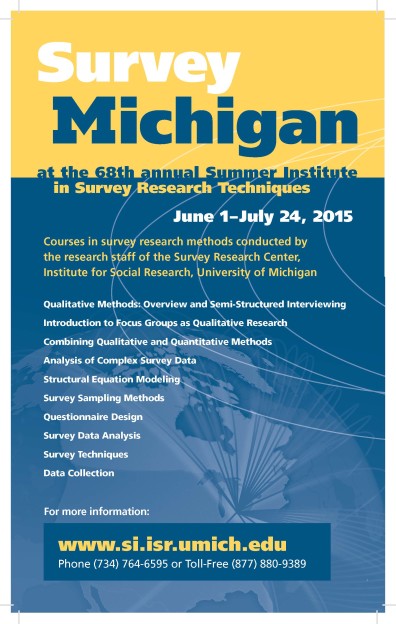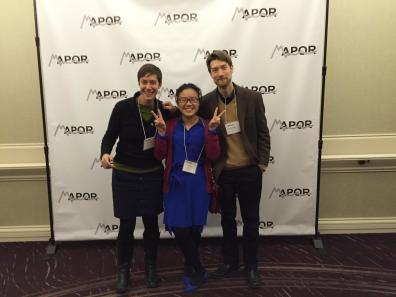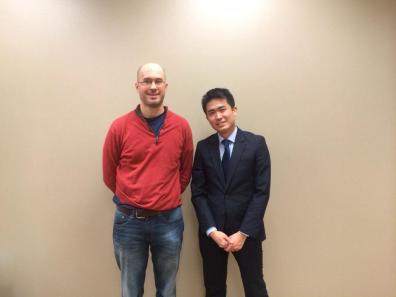WSU PolCom at MAPOR
mhutchensThe Midwest Association for Public Opinion Research’s unofficial motto of “the Midwest is a state of mind” was apparent when four WSU PolCom members made appearances at this year’s annual conference in Chicago Nov. 21st and 22nd.
Ph.D. Student Jackie Chan Chen presented two papers: “Opinion Leadership and Political Discussion: Two-step Flow and Social MediaUser Influence,” co-authored with Jason Reineke from Middle Tennessee State University; and “Political Activism and Online Political Donation,” co-authored with Michael Beam from Kent State University.
Murrow faculty member, and former MAPOR President, Doug Blanks Hindman presented “Political Misperception vs. Expression: Impact of Partisan Cues on Beliefs about Politically Contested Facts” in a special session focusing on the Belief Gap – a theory that Hindman advanced.
Murrow Faculty Myiah Hutchens and Jay Hmielowski were also present, and co-authored “Clicking vs. Sharing: The Impact of Online News Viewing and News Sharing on Political Knowledge” which was lead by Michael Beam.
WSU PolCom at NCA
mhutchensRecently members of Murrow’s political communication research group presented papers in Chicago, IL. at this year’s annual conference for the National Communication Association (NCA). The first paper, Talking Politics and Media Credibility: Examining the Conditional Indirect effects on Media Trust and Media Attention, was presented to the political communication division of NCA. The paper focused on the relationships between hearing opposing and supportive information through interpersonal discussion and levels of trust in partisan media outlets (e.g., Fox News & MSNBC). The paper was written by Sarah Staggs (University of Arizona), Michael Beam (Kent State University), and Murrow faculty Jay Hmielowski and Myiah Hutchens.
Jay Hmielowski was also a co-author on another paper presented at NCA. The paper, Alternative Views and Eroding Support: The Conditional Indirect Effects of Foreign Media and Internet Use on Regime Support in China, was written by Jun Xiang (University of Arizona) and Murrow Faculty Jay Hmielowski. The paper focused on the relationship between use of the Internet and foreign media with levels of trust and support for the current regime in China. The paper received a top paper award in the Association for Chinese Communication Studies.
Call for Papers: Digital Media, Power, and Democracy in Election Campaigns: A Workshop
mhutchensPlease see this page for information about workshop that will be held this summer, and may lead to a special issue of the International Journal of Press/Politics. It sounds like it will be a great fit for many Murrow PolCom folks.
ICA post-Conference Call for Papers
mhutchensCFP: ICA post-conference on Climate and Sustainability Campaigns co-sponsored by the Environmental Communication Division, the Health Communication Division and the Political Communication Division. Submit a 1,000 word abstract by Nov. 15 to Lucy Atkinson at lucyatkinson@austin.utexas.edu. See attached pdf for full call.
Call for Chapters- Private Chat to Public Sphere
mhutchensPlease click on the below link for information on a call for papers: Private chat to public sphere: Mobile media, political participation and civic activism in Asia


